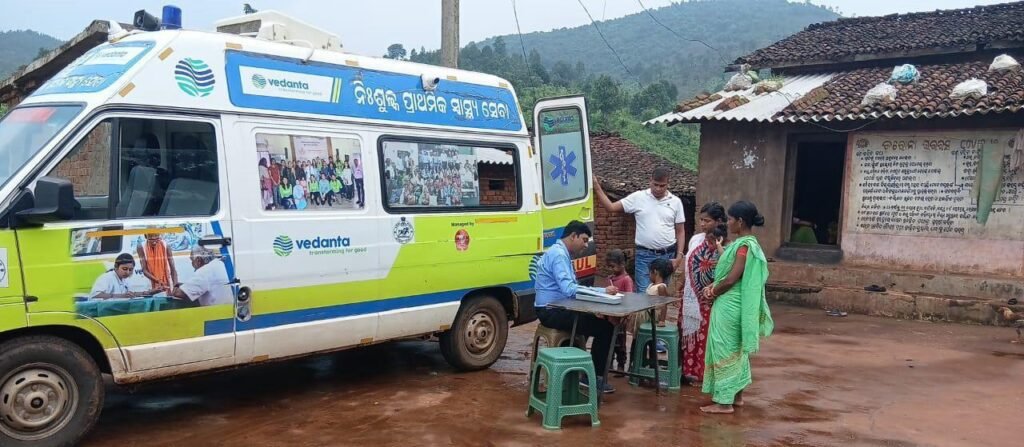Bhubaneswar, Odisha; 16th August 2025: In a significant push for women-led community resilience, Vedanta Aluminium has launched a transformative initiative in Rayagada and Kalahandi districts, empowering rural women to become frontline defenders of health and safety. Through its Mobile Health Unit (MHU) program, the company is equipping women with the knowledge, skills, and confidence to act as health ambassadors in their villages.
The program recognizes that women often shoulder the responsibility of family well-being, yet lack access to formal training or resources. To bridge this gap, Vedanta trained 80 women from Self-Help Groups (SHGs) across five villages in crucial areas such as safe water practices, household hygiene, snakebite prevention, maternal and child care, and basic first aid. By strengthening women’s ability to respond to emergencies and guide their communities, the initiative seeks to build resilience at the grassroots level.
“These women are now the first line of defense against common health risks,” said a senior official from Vedanta’s CSR team. “They are not only taking care of their families but also spreading awareness to neighbors, ensuring healthier, safer villages.”
One participant from Kalahandi shared that earlier, her family relied entirely on traditional remedies during emergencies, often losing precious time before reaching a hospital. “Now, with first-aid training, I can manage the situation until help arrives. I feel more confident, and my neighbors also seek my advice,” she said with pride.
Beyond training, Vedanta Aluminium has expanded healthcare access in underserved regions through its Mobile Health Units (MHUs). Each unit is staffed with a doctor, nurse, pharmacist, and lab technician, enabling delivery of essential healthcare services directly at villagers’ doorsteps. These MHUs have already benefitted 20,000 residents across 35 villages, providing free health check-ups, screenings, and medicines. In addition, over 2,000 awareness camps have been conducted on topics ranging from nutrition and maternal health to sanitation and vector-borne diseases.
The impact of these interventions is visible on the ground. Local communities report reduced reliance on unqualified practitioners, better hygiene habits at the household level, and increased trust in preventive healthcare. Women trained under the program are also engaging with schools, helping children understand the importance of clean drinking water and safe food practices.
Speaking about the initiative, Rajiv Kumar, CEO of Vedanta Aluminium, said, “Empowering women with health literacy creates a ripple effect of positive change. They become influencers within their communities, fostering healthier practices and stronger resilience to challenges. Through our Mobile Health Units, we are not only expanding access to medical care but also building local capacity to deal with health risks sustainably.”
The company’s efforts align with broader national goals of improving rural health infrastructure and promoting women’s leadership in community development. By combining healthcare delivery with women’s empowerment, Vedanta is working to ensure long-term impact that goes beyond immediate medical aid.
The women themselves are emerging as changemakers. From guiding families on safe storage of drinking water to assisting neighbors in emergencies like snakebites or accidents, they are redefining their role within the community. Many have expressed interest in taking further training, potentially becoming accredited health workers in the future.
The program underlines a powerful message: true resilience begins with informed communities, and when women lead the way, the impact multiplies across generations. By strengthening women’s capacity and extending healthcare access, Vedanta Aluminium is not just treating illnesses, it is fostering healthier, more self-reliant villages across Odisha.


